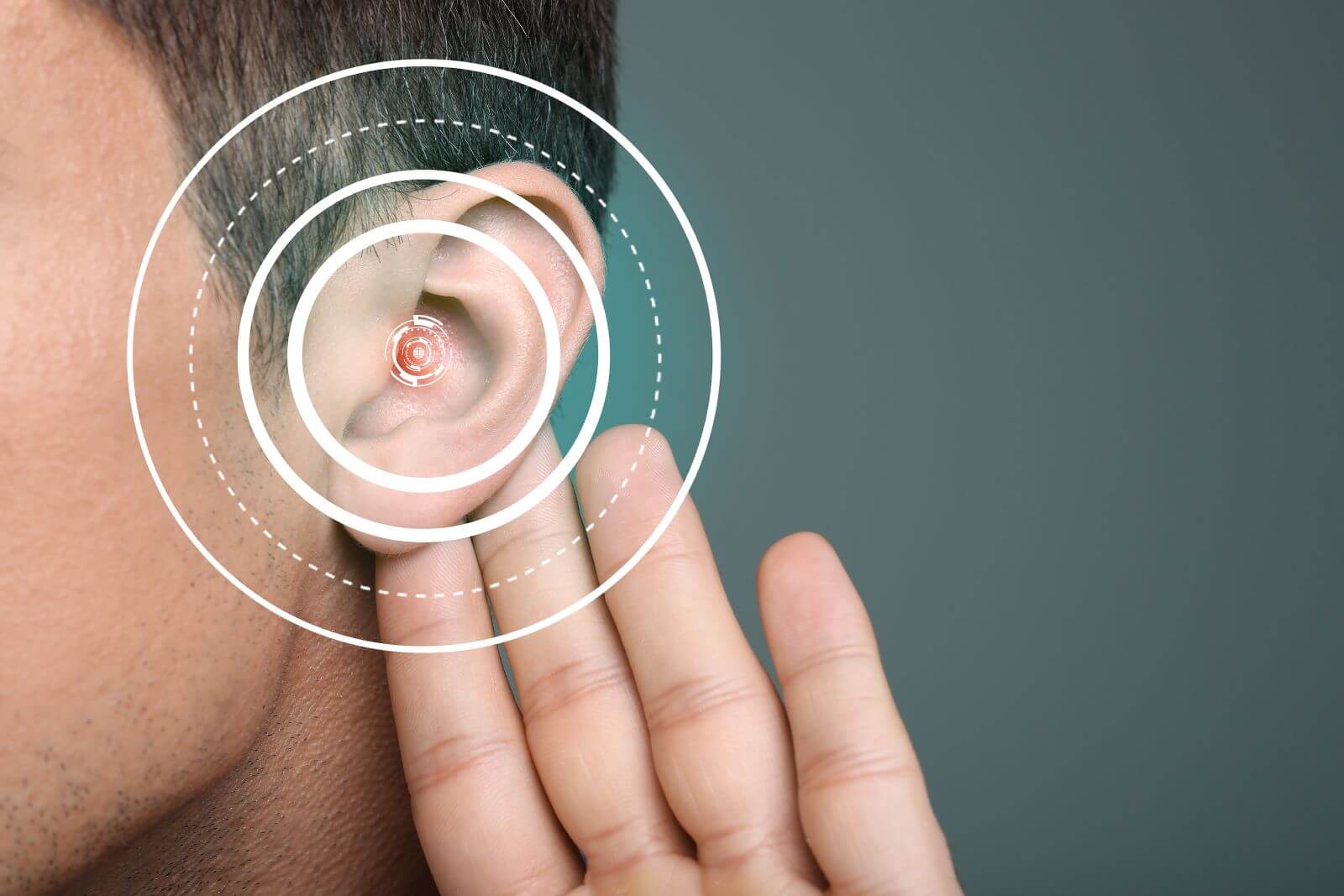
What Is Tinnitus?
Tinnitus is not a condition itself but is often a symptom of an underlying issue such as hearing loss, exposure to loud noise, or certain medical conditions. Tinnitus manifests as sounds that only you can hear, and these noises may vary in pitch and intensity. Everyone experiences tinnitus differently, but your tinnitus may be a ringing, hissing, whooshing, clicking, or buzzing sound.
Contact Us
What Causes Tinnitus?
Tinnitus can be triggered by various factors. Some of the common causes of tinnitus include:

Understanding your specific cause of tinnitus can help you tailor an effective treatment approach.
Contact Us
Treatment Options
Snyder Hearing Center offers a range of comprehensive treatment options to address the challenges of tinnitus. While there is no cure for tinnitus, there are ways you can effectively manage tinnitus and get relief from the constant sounds. Treatment options may include:

Hearing Aids
For individuals with hearing loss, hearing aids can amplify external sounds, reducing the perception of tinnitus. This approach is particularly effective when tinnitus is linked to hearing loss.

Sound Therapy
Masking the sound of tinnitus with soothing background noise can provide relief. This can be achieved through devices that emit white noise, nature sounds, or customized soundscapes. Many hearing aids have built-in tinnitus management programs that include customizable sound therapy.

Counseling and Education
Understanding tinnitus and learning coping strategies can be empowering. Counseling sessions can provide valuable insights and emotional support.
How to Manage Tinnitus at Home
In addition to professional interventions, there are several strategies that you can incorporate into your daily life to manage tinnitus symptoms:

- Maintain a Healthy Lifestyle: Engage in regular exercise, maintain a balanced diet, and ensure adequate sleep. These lifestyle factors contribute to overall well-being and can reduce the experience of tinnitus.
- Manage Stress: Practice stress-reducing techniques such as mindfulness, meditation, or yoga. Stress management can alleviate the emotional impact of tinnitus.
- Limit Exposure to Loud Noise: Protect your ears from loud environments and use earplugs or noise-canceling headphones when necessary. Minimizing exposure to loud noises can prevent further damage to the auditory system.
- Avoid Stimulants: Reduce or eliminate stimulants like caffeine and nicotine, as these can exacerbate tinnitus symptoms.
- Create a Relaxing Environment: Ensure your living and sleeping spaces are conducive to relaxation. Use calming sounds or white noise machines to create a soothing atmosphere.
Contact Us
Visit Us for Ongoing Tinnitus Support
If you are experiencing tinnitus or have concerns about your hearing health, schedule a consultation at Snyder Hearing Center. Our hearing health specialists will help you explore effective strategies for tinnitus management.
Our commitment goes beyond providing clinical solutions; we strive to empower you to take an active role in managing your tinnitus. By combining professional expertise with personalized care, we guide you toward a path of improved hearing health and tinnitus relief.
Contact Us

Get in Touch
At Snyder Hearing Center, we prioritize your comfort, satisfaction, and overall well-being. Schedule your next hearing test or consultation today and embark on a journey to vibrant hearing.
Send a Message
(812) 670-5081
